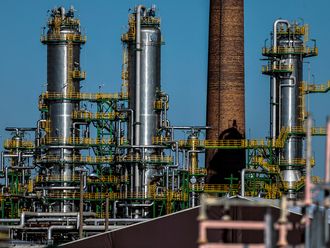Dubai: Shaikha Bodoor Bint Sultan Al Qasimi, chairperson of Sharjah Investment and Development Authority (Shurooq), has been named as the chair of the World Economic Forum’s Regional Business Council (RBC) for the Middle East and North Africa, the WEF said in a statement.
Shaikha Bodoor’s appointment was announced by Professor Klaus Schwab, founder and executive chairman of WEF.
“The Middle East is on the threshold of a new phase of growth. While a world of opportunities lies ahead, it is more important than ever for us to tread carefully and to place a strong focus on building integrated, inclusive and sustainable economies that are beneficial to all parties,” Shaikha Bodoor said in a statement.
Under Shaikha Bodoor’s leadership, the RBC will serve as a collaborative platform for addressing the complex economic, social and humanitarian challenges that the region faces. It will work to develop a strategic framework for deepening partnerships between the public and private sectors around economic integration and diversification, spurring innovation, economic growth, workforce skills development, entrepreneurship and increased female labour force participation.
Bridges of communication
Following the announcement of her appointment, Shaikha Bodoor participated in a number of discussion panels taking place at the WEF on the Middle East and North Africa. In the session “Stewarding a Policy Framework for Generational Transformation,” she underlined the need to extend bridges of communication between the council and the Regional Strategy Group (RGS), of which she is a member. Exploring areas where policy reform is required, she called for greater discussions on issues such as economic integration and diversification, job creation, education and training, health care and social development, in order to be able to agree on a regional agenda and the future role and mandate of the RGS.
The World Economic Forum on the Middle East and North Africa 2017 was held in partnership with the King Abdullah II Fund for Development. The meeting took place in the context of growing economic reform efforts that are being made in many countries in the region, as well as changing investment and trade priorities. Through several discussions and roundtables, the platform addressed the continued geopolitical shifts and humanitarian challenges by supporting multi-stakeholder dialogue on the situation in Syria, Iraq and Libya and the ongoing refugee crisis.












